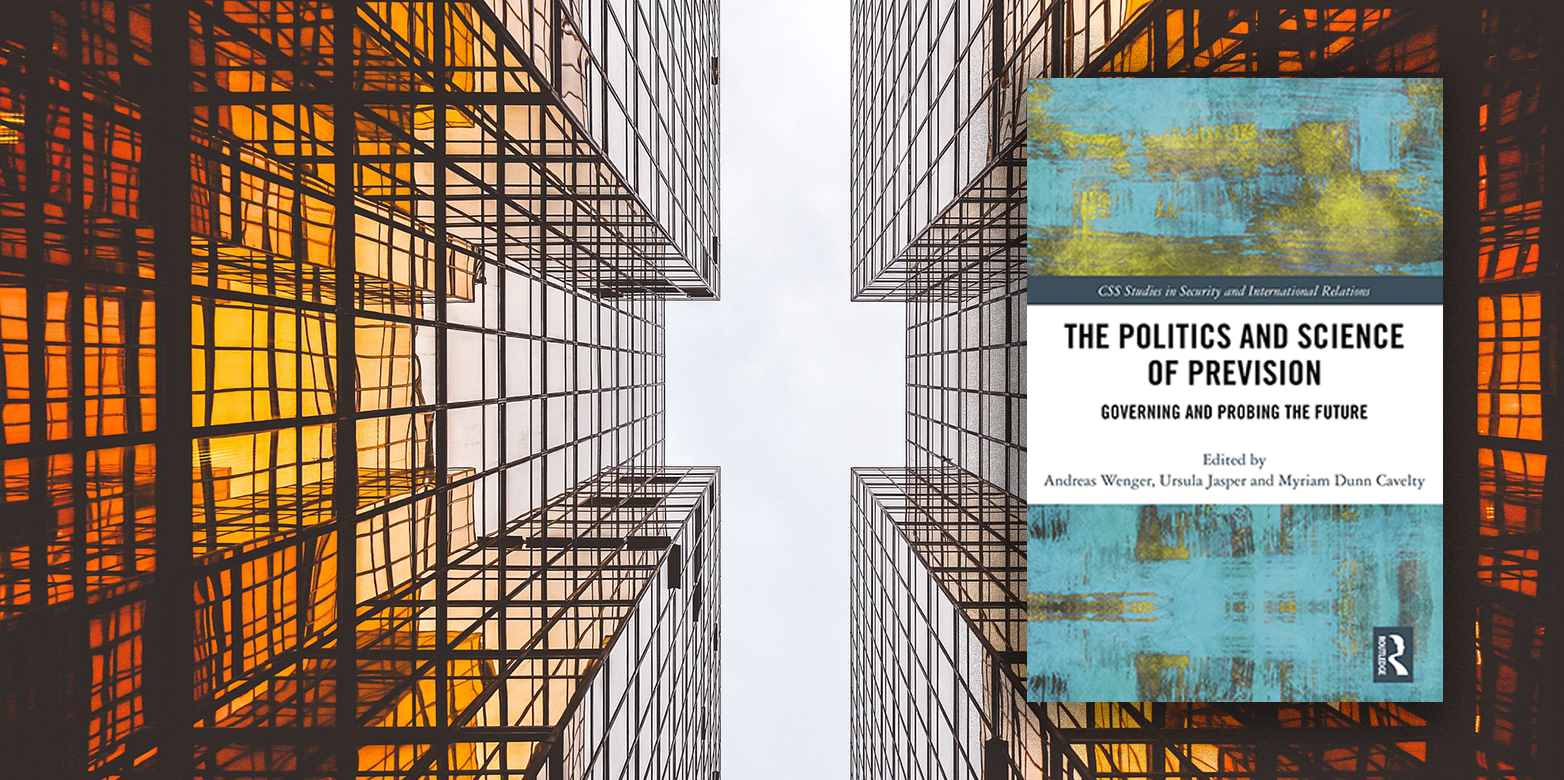The Politics and Science of Prevision: Governing and Probing the Future
This edited volume by Andreas Wenger, Ursula Jasper and Myriam Dunn Cavelty inquires into the use of prediction at the intersection of politics and academia, and reflects upon the implications of future-oriented policy-making across different fields.

external page To the publication
The volume focuses on the key intricacies and fallacies of prevision in a time of complexity, uncertainty, and unpredictability. The first part of the book discusses different academic perspectives and contributions to future-oriented policy-making. The second part discusses the role of future knowledge in decision-making across different empirical issues such as climate, health, finance, bio- and nuclear weapons, civil war, and crime.
It analyses how prediction is integrated into public policy and governance, and how in return governance structures influence the making of knowledge about the future. Contributors integrate two analytical dimensions in their chapters: the epistemology of prevision and the political and ethical implications of prevision. In this way, the volume contributes to a better understanding of the complex interaction and feedback loops between the processes of creating knowledge about the future and the application of this future knowledge in public policy and governance.
Content
Part I | Introduction
Chapter 1: Governing and probing the future: The politics and science of prevision
By Andreas Wenger, Ursula Jasper, Myriam Dunn Cavelty
Part II | Academic perspectives on future-oriented policy-making
Chapter 2: Imagined worlds: The politics of future-making in the twenty-first century
By Sheila Jasanoff
Chapter 3: How to know the future – and the past (and how not): A pragmatist perspective on foresight and hindsight 1
By Gunther Hellmann
Chapter 4: Future thinking and cognitive distortions: Key questions that guide forecasting processes
By Michael C. Horowitz
Chapter 5: Thinking historically: A guide for policy
By Francis J. Gavin
Chapter 6: From predicting to forecasting: Uncertainties, scenarios, and their (un-)intended side effects
By Myriam Dunn Cavelty
Part III| Empirical perspectives across policy fields
Chapter 7: Uncertainty and precariousness at the policy–science interface: Three cases of climate-driven adaptation
By Maria Carmen Lemos, Nicole Klenk
Chapter 8: The anticipative medicalization of life: Governing future risk and uncertainty in (global) health 1
By Ursula Jasper
Chapter 9: Crisis, what crisis? Uncertainty, risk, and financial markets 1
By Stephen C. Nelson, Peter J. Katzenstein
Chapter 10: Imagining future biothreats: The role of popular culture
By Filippa Lentzos, Jean-Baptiste Gouyon, Brian Balmer
Chapter 11: Forecasting civil war and political violence
By Corinne Bara
Chapter 12: Predicting nuclear weapons proliferation 1
By Jonas Schneider
Chapter 13: ‘We do that once per day’: Cyclical futures and institutional ponderousness in predictive policing 1
By Matthias Leese
Part IV | Conclusion
Chapter 14: The politics and science of the future: Assembling future knowledge and integrating it into public policy and governance
By Andreas Wenger, Myriam Dunn Cavelty, Ursula Jasper